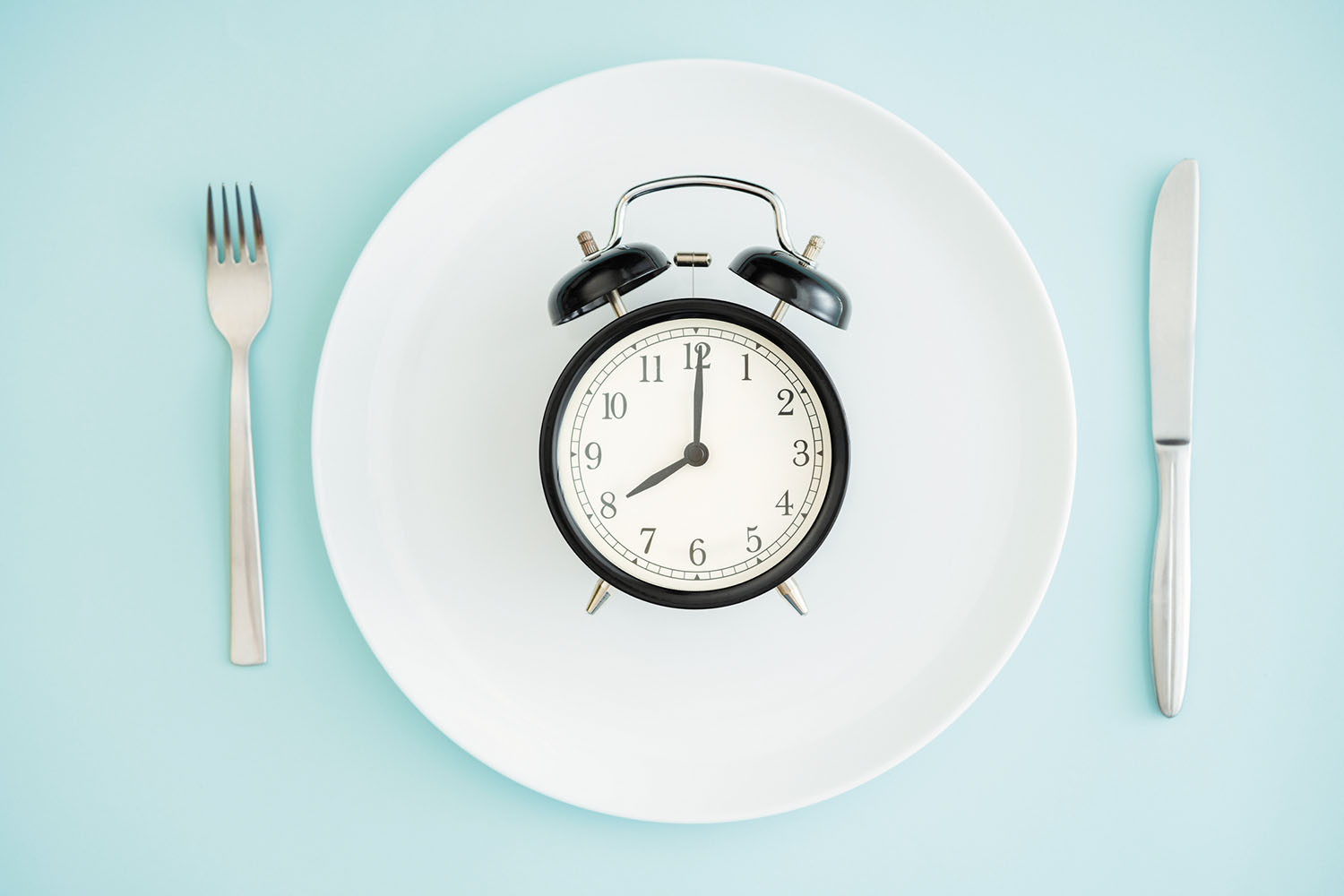Intermittent fasting continues to be popular, but are there any health benefits — or risks?

Diet trends come and go, but intermittent fasting has been around for some time. Now science has begun to look more closely at its possible health benefits. The verdict? It's too early to tell for sure. But early evidence suggests intermittent fasting can help.
The 16/8 approach
Intermittent fasting means that you refrain from eating for a designated amount of time each day. There are many ways to do this, but one of the most popular approaches is called 16/8. You eat during an eight-hour period — for example, from noon to 8 p.m. — followed by 16 hours of fasting, in this case, from 8 p.m. until noon the next day, when the pattern repeats.
This type of intermittent fasting is relatively easy to do compared with some other patterns, as you sleep for about half of the fasting period.
"You just don't eat after dinner — no nighttime snacking — and skip breakfast," says Dr. Eric Rimm, a professor of epidemiology and nutrition at the Harvard T.H. Chan School of Public Health.
You can drink water, tea, or coffee during the fasting period. Still, the focus is to avoid consuming anything that has significant calories. You also want to follow regular healthy eating habits during your eight-hour eating window.
"Just because you fasted doesn't mean you have permission to overindulge or eat junk food," says Dr. Rimm.
Short-term action
Intermittent fasting is less about nutrition and more about timing. Not eating for such a long period can place the body in a state of short-term ketosis, meaning the body burns fat for energy.
What does this do to our bodies? Scientists have only recently investigated the possible benefits of intermittent fasting.
Most research has focused only on what happens when people try intermittent fasting daily for a short period. "We don't know the implications of intermittent fasting over a long time, especially in terms of longevity," says Dr. Rimm. Nor is it clear if consistency is essential, or if following the routine every other day or only on weekdays (or some other schedule variation) is equally helpful.
Still, some recent studies have suggested intermittent fasting — in particular, 16/8 — may offer certain heart health benefits. For instance, a study in the March 2019 issue of Nutrients found that people who followed intermittent fasting lowered their blood pressure, cholesterol, and inflammation levels. Other research in both humans and animals has found that the switch to fat burning that results from fasting can help regulate blood sugar levels, treat obesity, and lower the risk of cardiovascular disease.
A weighty issue
While specific health benefits and durations are still being explored, many people find intermittent fasting can help them manage their eating habits and lose weight. For instance, fasting could help you reduce your daily calorie intake, especially if you are a late-night binge eater.
However, don't expect intermittent fasting to be a quick weight-loss solution. "It can take a long time for those fewer calories to translate to lost pounds," says Dr. Rimm. "You probably can't follow it now and then and expect any significant changes in weight."
He adds that the average person who follows this routine — along with a healthy diet and exercise — can expect to drop three to five pounds a month. And with weight loss comes other benefits like better blood pressure, lower cholesterol, less joint pain, and healthier sleep.
Take it slow
Should you give intermittent fasting a try? There doesn't appear to be much downside, according to Dr. Rimm.
Keep in mind, though, that intermittent fasting takes discipline, and it's not for everyone. Dr. Rimm suggests trying it every other day at first to see how you respond and whether it fits into your lifestyle.
After that, how often you do it and for how long depends on your goals and comfort level. If your goal is losing a few pounds or just maintaining your current weight, following the routine for most days may be the best approach.
Once people reach the desired weight, it's common for them to stop intermittent fasting and only return to it as needed. "Some people may find it helps them lose weight, and they adopt it again if they begin to gain the weight back," says Dr. Rimm.
Check with your doctor before trying intermittent fasting if you take blood pressure medication, often get dizzy from standing too quickly, or you have diabetes. "Low blood-sugar levels from not eating for so long could cause problems," says Dr. Rimm.
If you do try intermittent fasting, you may find it feels like a more natural way of eating, which is not too surprising, says Dr. Rimm. "After all, eating for only a brief period a day is likely how we used to eat 10,000 years ago.
Image: © erdikocak/Getty Images
Subscribe to Harvard Health Online for immediate access to health news and information from Harvard Medical School.
Disclaimer:
As a service to our readers, Harvard Health Publishing provides access to our library of archived content. Please note the date of last review or update on all articles. No content on this site, regardless of date, should ever be used as a substitute for direct medical advice from your doctor or other qualified clinician.
"try" - Google News
July 18, 2020 at 03:38AM
https://ift.tt/3eE132U
Should you try fasting? - Harvard Health
"try" - Google News
https://ift.tt/3b52l6K
Shoes Man Tutorial
Pos News Update
Meme Update
Korean Entertainment News
Japan News Update
Bagikan Berita Ini














0 Response to "Should you try fasting? - Harvard Health"
Post a Comment